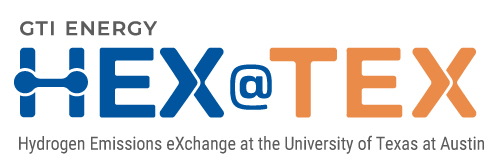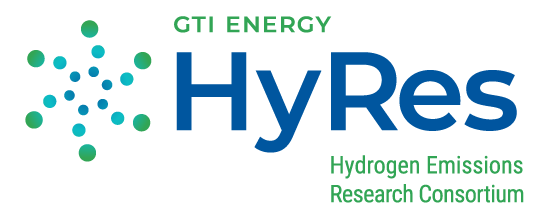
November 3 - 4, 2026 | Austin, Texas
HEX@TEX is back — bigger and better than before! Open to all, the annual Hydrogen Emissions eXchange at the University of Texas at Austin is your front-row seat to important emissions discussions playing a pivotal role in the future of the hydrogen industry.
Hosted by GTI Energy’s HyRes and the Webber Energy Group at UT Austin, HEX@TEX brings together hydrogen stakeholders from around the world — including leaders in government, academia, industry, and environmental advocacy — to advance knowledge, share best practices, and drive cutting-edge innovation in hydrogen emissions detection and measurement.
Where
Lil Tex Auditorium (Room 1.122), Commons Conference Center, J. J. Pickle Research Campus, the University of Texas at Austin, Austin, TX
When
Tuesday, November 3 – Wednesday November 4, 2026
Registration Deadline
TBA
Questions
hyres@gti.energy
Sponsorship Opportunities
Join us in supporting the advancement of hydrogen innovation by becoming a sponsor at HEX@TEX. View our sponsorship opportunities and plan to represent your company and network with leading organizations to build your brand.
Why should you attend HEX@TEX 2026
- Network with hydrogen experts and decision-makers from around the world
- Learn about the latest in hydrogen emissions detection technology
- Participate in collaborative sessions to share and gain information on the current state of the hydrogen economy
- Hear first-hand about breakthrough research and case studies
- Tour state-of-the-art energy facilities like H2@Scale at the UT Austin J. J. Pickle Research Campus
- Stay ahead of regulatory and technological trends
- Be part of the movement shaping a low-emissions hydrogen future
Who Should Attend HEX@TEX 2026
- Government agencies and regulators (federal, state, and international)
- Academic researchers and university labs
- Oil & gas industry leaders and innovators
- Natural gas utilities and energy providers
- Hydrogen producers and project developers
- Environmental NGOs and think tanks
- Sensor and monitoring technology companies
- Startups and entrepreneurs in clean energy
- Investors and venture capitalists in hydrogen technologies
- Delegates from industry coalitions


